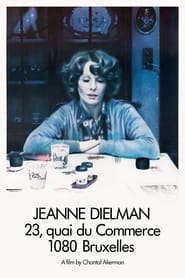It is not surprising that [Paul] Shrader admits, nevertheless, a liking for Jeane Dielman (1975). Is Jeanne not the Travis Bickle of bourgeois Brussels? In both films the final explosion of violence is an excessive response to prostitution. But there is no ironic coda for Jeanne, nothing to transmute her into a popular hero. In the last shot, she has nothing left to contemplate except the ruin of her carefully constructed life.
— Peter Benson (Letters: Sight and Sound September 2023)
There are two problems with giving the plot of Jeanne Dielman […]: it affords a false sense of control over the film and it risks implementing a directed rather than open and careful form of attention. First, the apparent epistemological certainly that drives the rhetoric of the 'plot' gives a distorted impression of what it is actually like to sit through Jeanne Dielman. When I say 'sit through' I'm explicitly referring to pre-video practices of spectatorship[;] that time then before we had remote control of the viewing experience, when we had to submit to the film's rhythm and duration. Post-video, it is an even bigger challenge to introduce the film to an audience whose experience of cinema is mediated through the small screen, with the light on. […] Coming to the second problem of the plot, I face the challenge of what to give away about Jeanne Dielman every time I screen it for students […]. The term 'give away' says it all. Each detail I tell them makes me feel like I'm giving them something for free, which they haven't earnt, or which they've stolen from Jeanne.
— Catherine Fowler: BFI Film Classics: Jeanne Dielman, 23, quai du commerce, 1080 Bruxelles (2021)
Mirrors create murderous doppengängers and split personalities—the murder sequence is shown entirely in mirror reflection and may only be a projection of Jeanne's desperate fantasies.
— Darragh O'Donoghue (Cineaste, Fall 2024)

